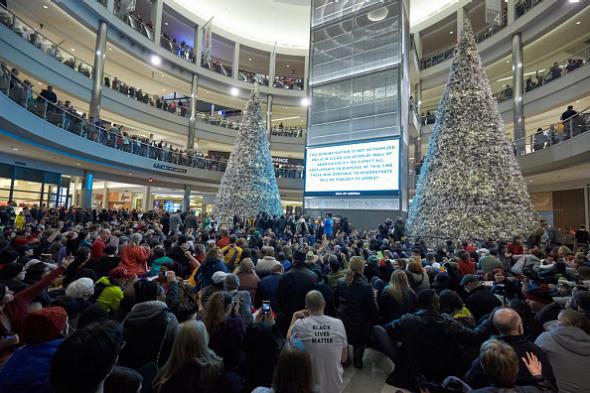Officials at the Mall of America have asked a judge to order Black Lives Matter protesters to stay away from the shopping center on Wednesday afternoon, the time of a planned rally at the Bloomington, Minnesota, landmark. The request for the restraining order names the Black Lives Matter organization itself as well as individual activists; in an unusual move, the mall’s attorneys also asked the judge to require several individuals to announce the protest’s (hypothetical) cancellation. (Black Lives Matter is often used as a catchall term but is also the name of a specific activist group.) From the Minneapolis Star-Tribune:
The protesters want to demonstrate at the country’s biggest mall to draw attention to the Nov. 15 police killing of a black Minneapolis man, Jamar Clark, and to ramp up the pressure on investigators to release video of the shooting. Authorities say they won’t release it while state and federal investigations are ongoing.
The mall wants to avoid the type of disruption caused by a Christmas-time demonstration last year, when thousands of protesters angry over the absence of charges involving police killings of unarmed black men in Ferguson, Missouri, and New York City forced the temporary closure of mall stores. Dozens of people were arrested.
(Here’s some background on Jamar Clark’s death.)
The mall argues that it should be allowed to forbid protests on its own (private) property and that its retailers’ business would be adversely affected by the disruption a protest would create. Protesters say they will move forward with the planned event regardless of how the judge in the case rules and that the demand to announce its cancellation is an infringement on their right to free speech. (They also point out that the Mall of America receives significant taxpayer funding and thus might be fairly considered a public place, though the Minnesota Supreme Court ruled against a litigant who made a similar argument in 1996.)
